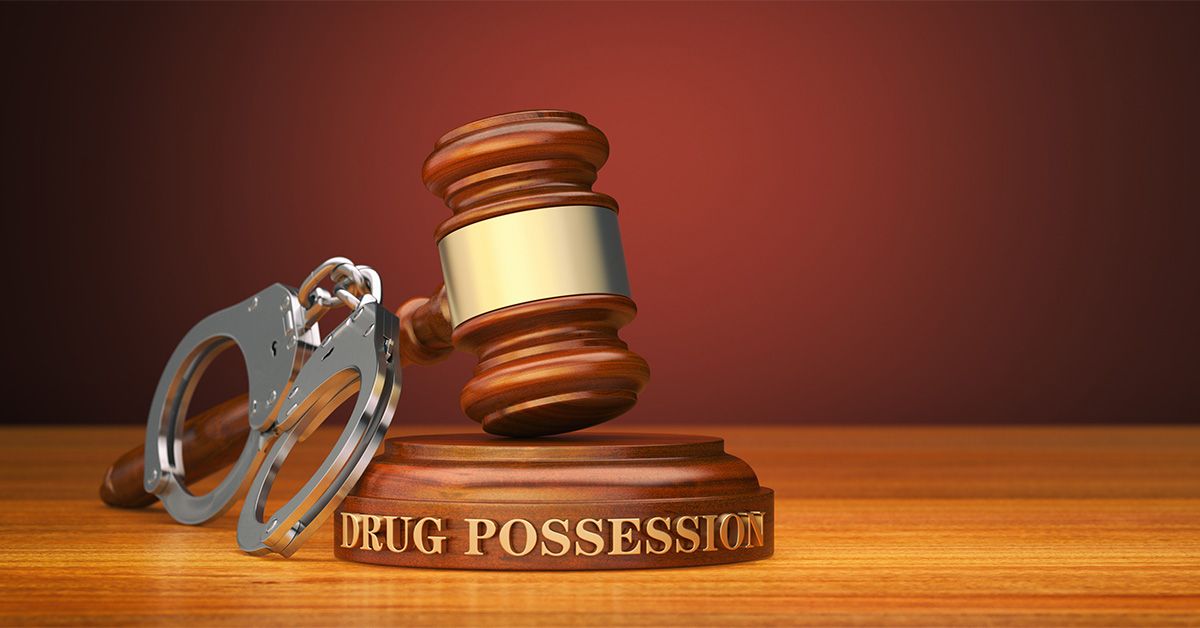Understanding a “Possession” Charge in the State of Florida

While some parts of the country have taken moves to decriminalize or decrease penalties for possessing small quantities of illegal drugs, the state of Florida continues to take a hardline approach to drug possession. Most illicit drugs fall under categories that carry felony criminal charges for possession. Depending upon the drug type and amount, those convicted of drug possession face up to 30 years in prison and/or a $10,000 fine when charged as a felony. Misdemeanor drug possession charges carry a maximum penalty of up to one year in jail and/or a $1,000 fine.
According to Florida Department of Law Enforcement statistics, more than 46,000 people were arrested in the state for drug possession in 2020, with more than 570 of these arrests occurring in Tallahassee’s Leon County. Meanwhile, Florida’s court system convicted more than 15,000 people for drug possession during the year. Given the state’s harsh stance on drug possession, you do not want to defend yourself in court against Florida drug possession charges. Experienced criminal defense lawyers, such as those at Tallahassee-based Cowhey + Ward Attorneys at Law, can help strategize a defense designed to secure an acquittal, dismissal, reduced charges, pretrial intervention, or other favorable outcome. Read on to learn more about Florida’s drug possession laws and what you should do if charged with possession.
What is Considered “Possession” in Florida?
Possession charges distinguish those who have illegal drugs for personal use from those responsible for manufacturing, distributing, and/or selling them. While the penalties for a conviction for possession can be severe, they are generally more lenient than those given for other drug offenses. Those which are collectively referred to as trafficking.
To prove possession in court, prosecutors need to provide evidence that the defendant knowingly had control over the illegal drugs, whether through actual possession or constructive possession. Actual possession refers to situations in which the defendant is in physical possession of the illegal drugs at the time of the arrest. This is typically easier to prove than constructive possession, which refers to illegal drugs that are discovered in a home or vehicle.
Understanding Florida Drug Possession Penalties
Florida statutes have three categories of felony drug possession and one category of misdemeanor drug possession. The categories are dictated by five types of drugs, with Schedule I drugs described as having the highest potential for abuse and no currently accepted medical use, while Schedule V drugs have the relative lowest potential for abuse and may have accepted medical uses. With hundreds of drugs listed within the schedules, space does not allow their inclusion here, but some examples are as follows:
- Schedule I—Heroin, psilocybin, mescaline, methamphetamines, LSD, cannabis (though less than 20 grams of cannabis is treated as a Schedule V drug and medically prescribed cannabis legal).
- Schedule II—codeine, morphine, fentanyl, cocaine, opium and its extracts.
- Schedule III—anabolic steroids, ketamine, testosterone.
- Schedule IV—diazepam, phenobarbital.
- Schedule V—limited amounts of lower-schedule drugs that have an accepted medical use (cough suppressants, motefen, lyrica).
The first-degree misdemeanor charge is applied to possession of Schedule V drugs and twenty grams or less of marijuana. As previously noted, maximum penalties upon conviction are a year in prison and/or $1,000.00 fine. Prosecutors typically do not seek the harshest terms for first-time offenders. Courts may agree to put aside the conviction if the defendant agrees to attend a pretrial intervention program.
A first-degree felony charge with its maximum 30-year prison sentence is applied to those possessing ten grams or more of Schedule I drugs. Second-degree felony drug possession covers Schedule II drugs and lower amounts of Schedule I drugs. A second-degree conviction carries a maximum penalty of 15 years in prison and/or $10,000 fine. Third-degree felony drug possession covers any Schedule III or IV drug. It may also be applied to Schedule I or II drugs in specific situations. It carries a maximum penalty of five years in prison and/or $5,000.00 fine if convicted.
Know that those convicted of drug possession may also face probation, driver’s license suspension, and a criminal record that may impact future employment and educational opportunities. Subsequent drug offenses typically result in harsher penalties if convicted.
What To Do If You Are Arrested for Drug Possession
If you are arrested on drug possession charges, you should seek out the services of an experienced criminal defense lawyer as soon as possible. Other than identifying yourself, do not provide the police any information until you have consulted with a lawyer. You have the right to remain silent and you should use that right to ensure that police do not attempt to use what you might say against you.
Accessibility Statement
Our firm is committed to keeping our site accessible to everyone. We welcome feedback on ways to improve the site’s accessibility.
